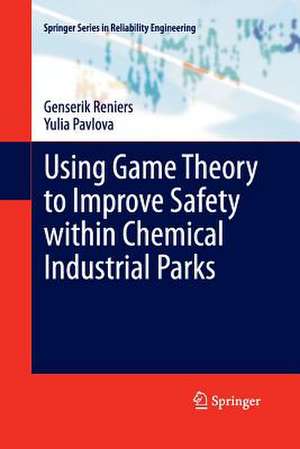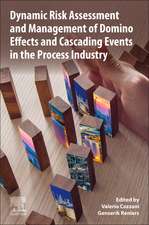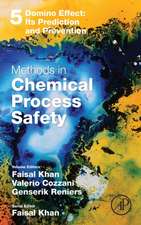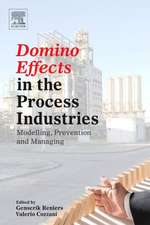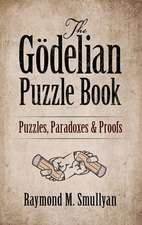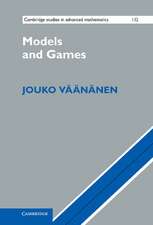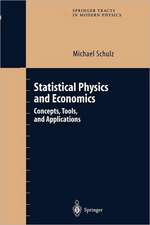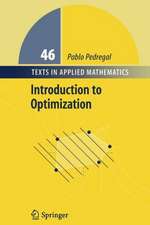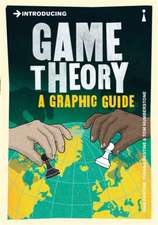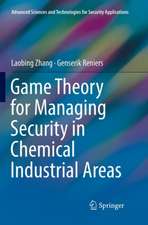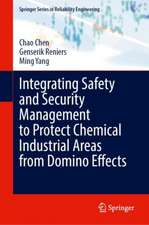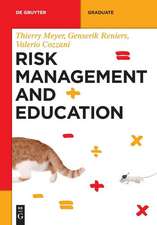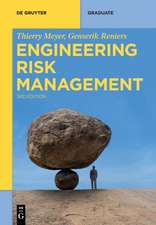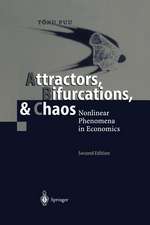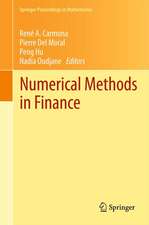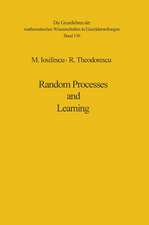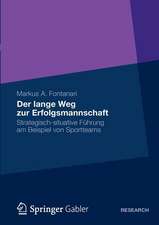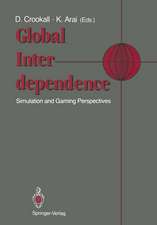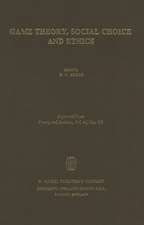Using Game Theory to Improve Safety within Chemical Industrial Parks: Springer Series in Reliability Engineering
Autor Genserik Reniers, Yulia Pavlovaen Limba Engleză Paperback – 20 mai 2015
By systematically analyzing game-theoretic models and approaches in relation to managing safety in chemical industrial parks, Using Game Theory for Improving Safety within Chemical Industrial Parks explores the ways game theory can predict the outcome of complex strategic investment decision making processes involving several adjacent chemical plants. A number of game-theoretic decision models are discussed to provide strategic tools for decision-making situations.
Offering clear and straightforward explanations of methodologies, Using Game Theory for Improving Safety within Chemical Industrial Parks provides managers and management teams with approaches to asses situations and to improve strategic safety- and prevention arrangements.
| Toate formatele și edițiile | Preț | Express |
|---|---|---|
| Paperback (1) | 683.39 lei 6-8 săpt. | |
| SPRINGER LONDON – 20 mai 2015 | 683.39 lei 6-8 săpt. | |
| Hardback (1) | 638.76 lei 6-8 săpt. | |
| SPRINGER LONDON – 17 apr 2013 | 638.76 lei 6-8 săpt. |
Din seria Springer Series in Reliability Engineering
- 18%
 Preț: 1122.56 lei
Preț: 1122.56 lei - 20%
 Preț: 1277.89 lei
Preț: 1277.89 lei - 20%
 Preț: 987.32 lei
Preț: 987.32 lei - 18%
 Preț: 1406.66 lei
Preț: 1406.66 lei - 24%
 Preț: 1048.67 lei
Preț: 1048.67 lei - 20%
 Preț: 940.32 lei
Preț: 940.32 lei - 18%
 Preț: 952.09 lei
Preț: 952.09 lei -
 Preț: 313.32 lei
Preț: 313.32 lei - 18%
 Preț: 951.29 lei
Preț: 951.29 lei - 18%
 Preț: 947.02 lei
Preț: 947.02 lei - 15%
 Preț: 651.51 lei
Preț: 651.51 lei - 18%
 Preț: 1228.44 lei
Preț: 1228.44 lei - 18%
 Preț: 1227.67 lei
Preț: 1227.67 lei - 18%
 Preț: 952.89 lei
Preț: 952.89 lei - 18%
 Preț: 1234.94 lei
Preț: 1234.94 lei - 18%
 Preț: 1236.19 lei
Preț: 1236.19 lei - 18%
 Preț: 952.09 lei
Preț: 952.09 lei - 15%
 Preț: 635.65 lei
Preț: 635.65 lei - 20%
 Preț: 1274.57 lei
Preț: 1274.57 lei - 18%
 Preț: 1322.35 lei
Preț: 1322.35 lei - 15%
 Preț: 643.34 lei
Preț: 643.34 lei - 18%
 Preț: 1109.16 lei
Preț: 1109.16 lei - 15%
 Preț: 635.65 lei
Preț: 635.65 lei - 15%
 Preț: 654.62 lei
Preț: 654.62 lei - 18%
 Preț: 944.99 lei
Preț: 944.99 lei - 18%
 Preț: 953.65 lei
Preț: 953.65 lei - 18%
 Preț: 956.50 lei
Preț: 956.50 lei - 15%
 Preț: 644.95 lei
Preț: 644.95 lei - 18%
 Preț: 950.52 lei
Preț: 950.52 lei - 18%
 Preț: 1233.97 lei
Preț: 1233.97 lei - 15%
 Preț: 640.06 lei
Preț: 640.06 lei - 18%
 Preț: 956.69 lei
Preț: 956.69 lei - 18%
 Preț: 940.39 lei
Preț: 940.39 lei - 18%
 Preț: 948.92 lei
Preț: 948.92 lei -
 Preț: 389.70 lei
Preț: 389.70 lei - 18%
 Preț: 943.73 lei
Preț: 943.73 lei - 18%
 Preț: 1213.16 lei
Preț: 1213.16 lei - 18%
 Preț: 940.57 lei
Preț: 940.57 lei - 20%
 Preț: 985.03 lei
Preț: 985.03 lei - 18%
 Preț: 943.43 lei
Preț: 943.43 lei - 18%
 Preț: 1218.21 lei
Preț: 1218.21 lei - 18%
 Preț: 948.16 lei
Preț: 948.16 lei - 18%
 Preț: 948.92 lei
Preț: 948.92 lei - 18%
 Preț: 1727.24 lei
Preț: 1727.24 lei - 15%
 Preț: 638.43 lei
Preț: 638.43 lei
Preț: 683.39 lei
Preț vechi: 804.00 lei
-15% Nou
Puncte Express: 1025
Preț estimativ în valută:
130.76€ • 136.53$ • 108.23£
130.76€ • 136.53$ • 108.23£
Carte tipărită la comandă
Livrare economică 04-18 aprilie
Preluare comenzi: 021 569.72.76
Specificații
ISBN-13: 9781447160526
ISBN-10: 1447160525
Pagini: 136
Ilustrații: XI, 121 p.
Dimensiuni: 155 x 235 x 7 mm
Greutate: 0.2 kg
Ediția:2013
Editura: SPRINGER LONDON
Colecția Springer
Seria Springer Series in Reliability Engineering
Locul publicării:London, United Kingdom
ISBN-10: 1447160525
Pagini: 136
Ilustrații: XI, 121 p.
Dimensiuni: 155 x 235 x 7 mm
Greutate: 0.2 kg
Ediția:2013
Editura: SPRINGER LONDON
Colecția Springer
Seria Springer Series in Reliability Engineering
Locul publicării:London, United Kingdom
Public țintă
Professional/practitionerCuprins
1.Introduction.- 2.Safety management in chemical industrial clusters: the state-of-the-art.- 3.Introduction into strategic decision-making.- 4.A game-theoretic model for cross-plant prevention in a chemical industrial park.- 5.An algorithm to enhance safety collaboration within chemical industrial parks.- 6.Cooperative Incentives Approach (CIA) in case of an MPC with limited resources.- 7.Management roadmap to enhance safety collaboration in chemical industrial parks.- 8.Conclusions and recommendations.
Notă biografică
Genserik Reniers obtained a Master's degree in chemical engineering at the Vrije Universiteit Brussel and received his PhD in Applied Economic Sciences from the University of Antwerp. His main research interests concern the application of multi-disciplinary approaches encompassing chemical engineering, economics and management in the safety and security research field. Especially collaboration surrounding safety and security topics and socio-economic optimization within the chemical industry represents his field of expertise. Professor Reniers has published over 50 papers in high quality international journals and has written several books on safety and security engineering and management. He currently serves as Associate Editor for the renowned academic journals Journal of Loss Prevention in the Process Industries and Safety Science.
Yulia Pavlovaobtained a Master's degree in applied mathematics and computer science at the St. Petersburg University, Russia, and received her first PhD in Discrete Mathematics and Cybernetics from the St. Petersburg University, and the second PhD in Scientific Computing from the University of Jyväskylä, Finland. Her main research interests concern application of game theoretic and applied mathematic methods to the issues of international cooperation on global environmental problems and transboundary pollution, integrated modeling of agro-environmental systems, adaptation to climate change and risk mitigation. Dr. Yulia Pavlova’s special competence includes applied mathematics, applied game theory, optimization, environmental economics, and computer science.
Yulia Pavlovaobtained a Master's degree in applied mathematics and computer science at the St. Petersburg University, Russia, and received her first PhD in Discrete Mathematics and Cybernetics from the St. Petersburg University, and the second PhD in Scientific Computing from the University of Jyväskylä, Finland. Her main research interests concern application of game theoretic and applied mathematic methods to the issues of international cooperation on global environmental problems and transboundary pollution, integrated modeling of agro-environmental systems, adaptation to climate change and risk mitigation. Dr. Yulia Pavlova’s special competence includes applied mathematics, applied game theory, optimization, environmental economics, and computer science.
Textul de pe ultima copertă
Though the game-theoretic approach has been vastly studied and utilized in relation to economics of industrial organizations, it has hardly been used to tackle safety management in multi-plant chemical industrial settings. Using Game Theory for Improving Safety within Chemical Industrial Parks presents an in-depth discussion of game-theoretic modelling which may be applied to improve cross-company prevention and -safety management in a chemical industrial park.
By systematically analyzing game-theoretic models and approaches in relation to managing safety in chemical industrial parks, Using Game Theory for Improving Safety within Chemical Industrial Parks explores the ways game theory can predict the outcome of complex strategic investment decision making processes involving several adjacent chemical plants. A number of game-theoretic decision models are discussed to provide strategic tools for decision-making situations.
Offering clear and straightforward explanations of methodologies, Using Game Theory for Improving Safety within Chemical Industrial Parks provides managers and management teams with approaches to asses situations and to improve strategic safety- and prevention arrangements.
By systematically analyzing game-theoretic models and approaches in relation to managing safety in chemical industrial parks, Using Game Theory for Improving Safety within Chemical Industrial Parks explores the ways game theory can predict the outcome of complex strategic investment decision making processes involving several adjacent chemical plants. A number of game-theoretic decision models are discussed to provide strategic tools for decision-making situations.
Offering clear and straightforward explanations of methodologies, Using Game Theory for Improving Safety within Chemical Industrial Parks provides managers and management teams with approaches to asses situations and to improve strategic safety- and prevention arrangements.
Caracteristici
Includes a number of game-theoretic decision models Addresses cross-corporate safety and security management to help improve decision making Discussion of theories and applications enables readers to identify their own company's situation and to act accordingly
